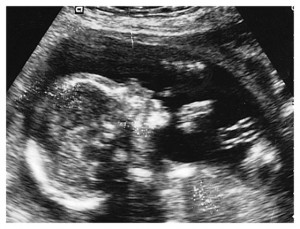 Most news reports about Mississippi’s proposed “personhood amendment” have cast the measure’s pro-life sponsors as the aggressors in a brand-new phase of the abortion wars, one in which abortion opponents rely on clever linguistic tricks to launch an unprecedented attack on abortion rights. That storyline omits one important fact: Abortion-rights advocates are the ones who fired the first salvos of the personhood debate. And they have been using semantic sleights of hand to gain leverage in that debate since long before the launch of Mississippi’s “Yes on 26” campaign.
Most news reports about Mississippi’s proposed “personhood amendment” have cast the measure’s pro-life sponsors as the aggressors in a brand-new phase of the abortion wars, one in which abortion opponents rely on clever linguistic tricks to launch an unprecedented attack on abortion rights. That storyline omits one important fact: Abortion-rights advocates are the ones who fired the first salvos of the personhood debate. And they have been using semantic sleights of hand to gain leverage in that debate since long before the launch of Mississippi’s “Yes on 26” campaign.
The question of who counts as a rights-bearing human person first gained prominence in the abortion debate after the Roe v. Wade ruling of 1973. That’s when Supreme Court Justice Harry Blackmun and his colleagues presumed to overturn anti-abortion laws across America even as they professed ignorance of a basic biological fact the average seventh-grader can recite in his sleep: the question of when human life begins.
“We need not resolve the difficult question of when life begins,” Blackmun wrote, in his attempt to explain why the court had sidestepped the main argument against legalized abortion: the fact that it entails the destruction of a living human being. “When those trained in the respective disciplines of medicine, philosophy, and theology are unable to arrive at any consensus, the judiciary, at this point in the development of man’s knowledge, is not in a position to speculate as to the answer.”
Blackmun’s muddled statement confused the biological question of when human life begins with the moral and philosophical question of what value that nascent human life possesses. Unwilling to explicitly answer the latter, he disingenuously pleaded ignorance about the former. He did so even though the answer to his supposedly vexing biological query can be found in most any embryology textbook, including those written decades ago, when abortion-rights activists still were claiming that “no one knows when life begins.” As the 1975 edition of Medical Embryology put it, “The development of a human being begins with fertilization, a process by which two highly specialized cells, the spermatozoon from the male and the oocyte from the female, unite to give rise to a new organism, the zygote.”
Blackmun’s Roe rationale may have been riddled with holes, but abortion-rights activists have been parroting it faithfully for four decades. Shifting the abortion debate from scientific facts to philosophical theories of personhood has become their favorite rhetorical trick now that advances in ultrasound technology have undercut their earlier denials of the unborn child’s humanity. Their new argument goes like this: that being you see waving at you from the sonogram screen is indeed human and alive, but she is not a human person – and is not, therefore, entitled to human rights.
In this view, exactly what makes a human being a person is unclear. Some abortion-rights advocates define personhood by location — as in, outside the womb — or by such qualities as rationality and autonomy. Using that latter definition, Princeton philosopher Peter Singer argues that severely disabled newborns and demented adults do not count as persons while chimpanzees, gorillas and orangutans do. Not surprisingly, Singer defends infanticide and euthanasia as well as abortion, claiming that it is illogical to protect human life simply because it is human.
The pro-life view, by contrast, embraces the self-evident truth that personhood begins when life begins. So the human embryo is a person, even if he is unwanted by the parents who conceived him or the scientists who cloned him. The fetus is a person, even if her gender or genetic defect makes her existence an inconvenience. The disabled child, the comatose spouse, the demented elder – all are persons entitled to rights simply because of the fact of their humanity.
This truth does not make personhood amendments like the one proposed in Mississippi a slam dunk, even for staunchly pro-life Americans. Many, including myself, have concerns about the strategic merits of such amendments and worry that they could have unintended legal consequences that undermine the pro-life cause.
Even so, the basic philosophical premise behind these amendments is eminently reasonable. And the alternative on offer – which severs humanity from personhood – is fraught with peril. If being human is not enough to entitle one to human rights, then the very concept of human rights loses meaning. And all of us — born and unborn, strong and weak, young and old — someday will find ourselves on the wrong end of that cruel measuring stick.
(© 2011 Colleen Carroll Campbell)



